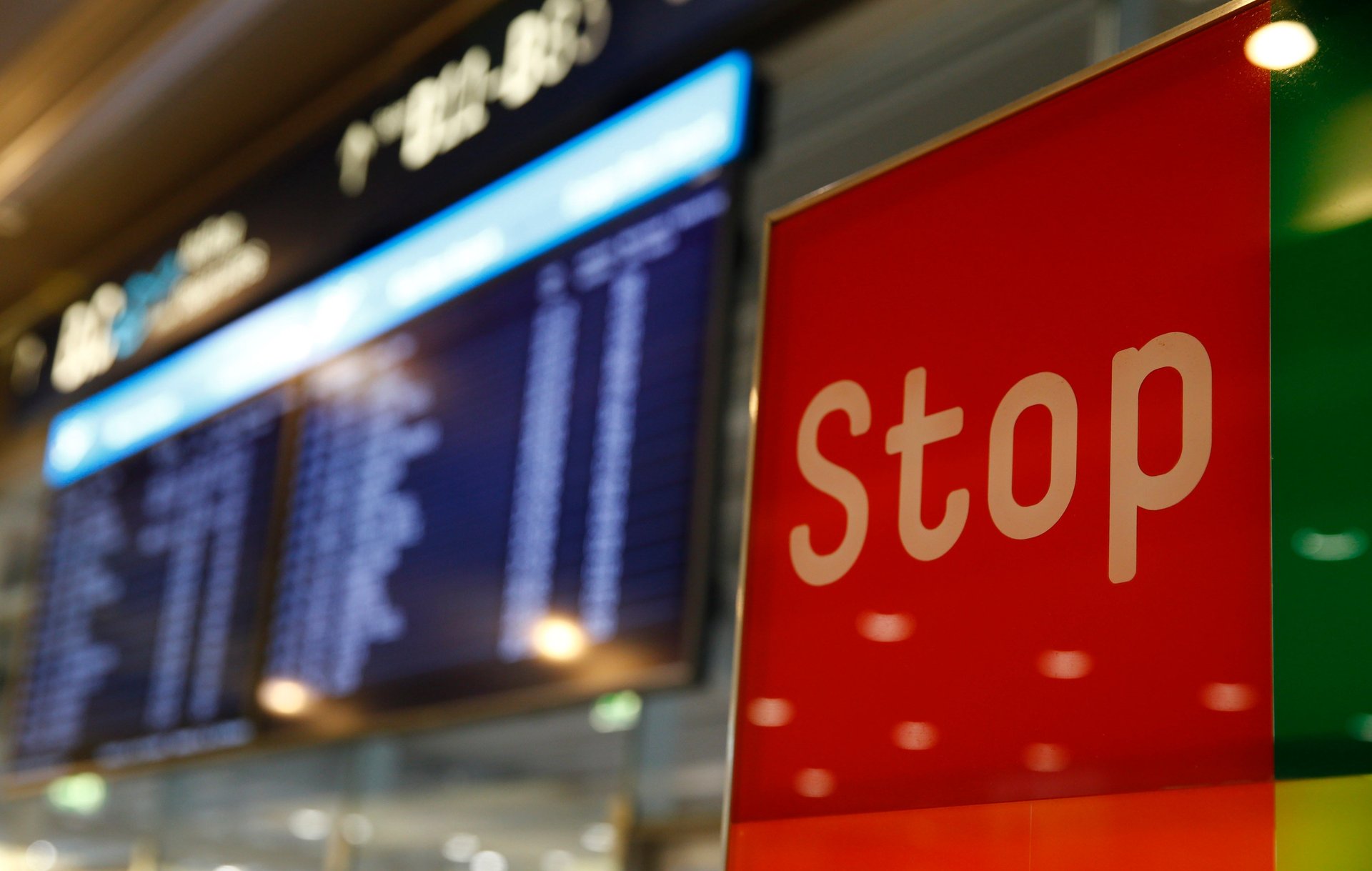The US is attracting record visitors from the Middle East and Mexico—just as Trump threatens to keep them out
The United States just elected a hotelier the country’s next president. Yet Donald Trump rode to victory by vowing to close the country’s door behind him.


The United States just elected a hotelier the country’s next president. Yet Donald Trump rode to victory by vowing to close the country’s door behind him.
Trump’s campaign trail rhetoric included a call for a ”total and complete shutdown of Muslims from entering the US” and ”extreme vetting” of many of the people from those countries. He has also promised the construction of a wall along the US border with Mexico. Some had poked fun at Trump’s ideas. A few days before the election, Royal Jordanian Airlines told potential customers: “Just in case he wins… travel to the US while you’re still allowed to.”
But now that Trump’s presidency is an impending reality, will foreigners stay away from a new, less-welcoming America—by choice?
Turning the US into a country that’s unfriendly to visitors would be to stifle what has been a big money-maker for the US. Last year, a record 77.5 million foreign visitors came to the US. Nearly half of them came from countries outside of Mexico and Canada, the biggest sources of US visitors.
Foreign visitors to the US generated $246 billion in revenue last year, according to the US Department of Commerce. Each overseas traveler spends an average of $4,400 when they visit the US, the US Travel Association says.
The US has also been attracting more visitors from the Middle East in recent years, with a record 1.3 million arriving last year. While the region—where most of the populations are Muslim—is the source of less than 2% of the arrivals overall, the number of arrivals is growing faster than the overall average.
But that was before Trump was elected—with his rhetoric and promises about Muslims—which has unleashed a spate of hate attacks across the US. Last year, reported hate crimes against Muslims last year rose by 67% to the most since the year of the Sept. 11, 2001 terrorist attacks. Trump’s victory comes after many countries have issued travel advisories to their citizens about visiting the US, warning about potential police brutality, gun violence, and anti-Muslim profiling. Turkey is the latest.
Visitors from Mexico had also been on the rise with 18 million arriving last year. But anti-immigrant sentiment and support for Trump’s promises for heavy-handed policies against undocumented immigrants could make visitors think twice. Rather than welcome anybody, his first words on the subject have been about deporting 2-3 million illegal immigrants with criminal records.
And while the US logged 15 million visitors from Europe last year, that brings its own set of concerns. European citizens of Middle Eastern and South Asian ancestry aren’t exempt from profiling, either. France, for example, has Europe’s largest population of Muslims and has also suffered from a recent string of vicious terror attacks. Trump vowed ”I would be so extreme in terms of documentation” following the Bastille Day attack in Nice.
Trump’s promises and the leanings of some of his supporters are reasonable concerns for the tourism industry. The president-elect has yet to spell out his exact policies—but “extreme vetting” and the Mexican wall remain policies on his transitional website.
In an open letter to Trump posted to Facebook, Arne Sorenson, the chief executive of Marriott International and a Trump competitor in the innkeeper business, wrote:
Use your leadership to minimize divisiveness around these areas by letting people live their lives and by ensuring that they are treated equally in the public square… You have been clear about your intent to quickly enhance the security of our borders. That is a sensible idea, even if a literal wall is unwise. Strengthening our borders, however, should not lead us to close America to travelers from around the world.
At least Trump, in his own words, has acknowledged that running the country is very different to running his own hotel empire. ”I don’t care about hotel occupancy,” Trump said in an interview on 60 Minutes that aired Nov. 13. ”It’s peanuts compared to what we’re doing.”